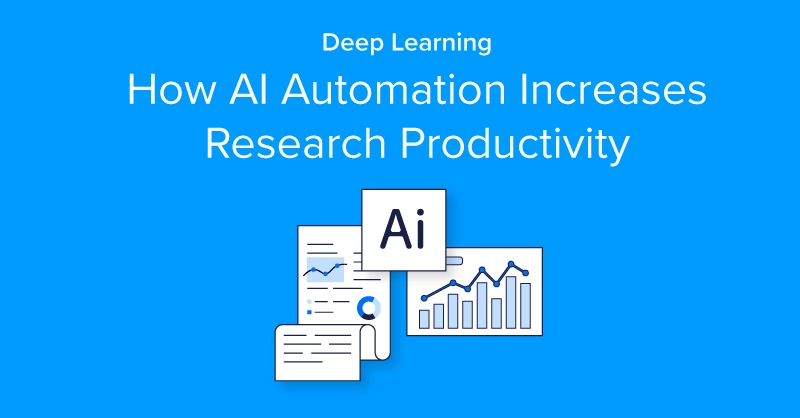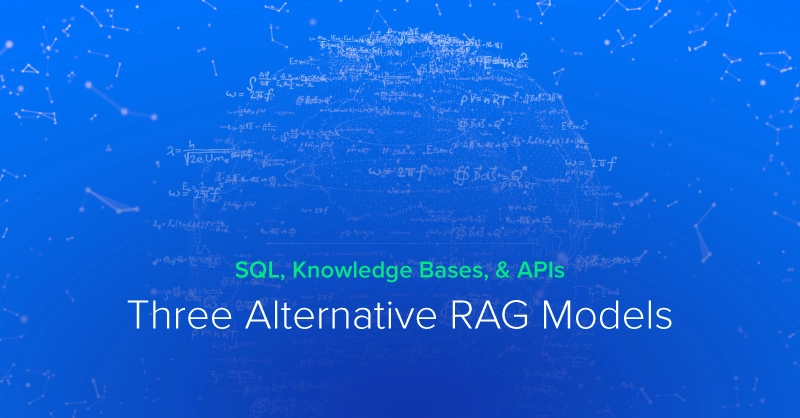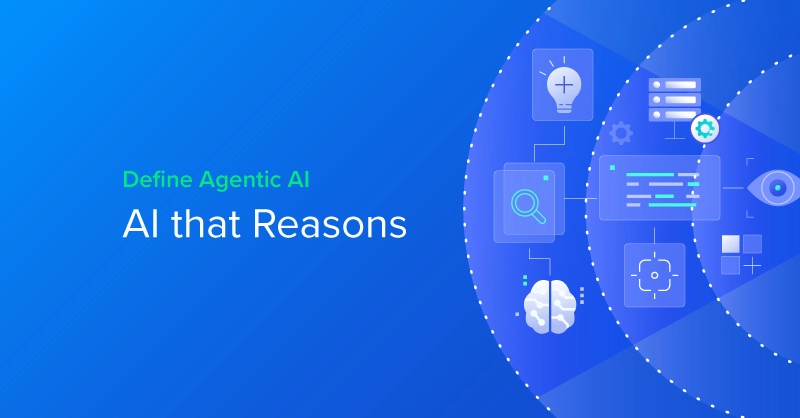
Optimizing Our Supply Chain Using Artificial Intelligence
In recent years, the management of supply chains has evolved into an intricate and challenging process. The interconnectivity of physical flows and the surge in market volatility have heightened the demand for agility and adaptability. This has only been exacerbated by the COVID-19 pandemic which has seen an increased global demand for resources while juggling a variety of changing pandemic precautions.
In response to these challenges, the integration of Artificial Intelligence (AI) into supply chain management has become more prevalent. Industries are increasingly recognizing the resilience and preparedness that early AI adopters exhibit, positioning them favorably for the inevitable integration of artificial intelligence into the future of supply chain management.
Supply chain management intertwines transportation, production, acquisition, marketing, sales, and various other facets. Companies leverage supply chain management to formulate integrated plans, effectively balancing trade-offs across diverse activities to optimize earnings. However, managing supply chains can swiftly become an overwhelming task without external assistance.
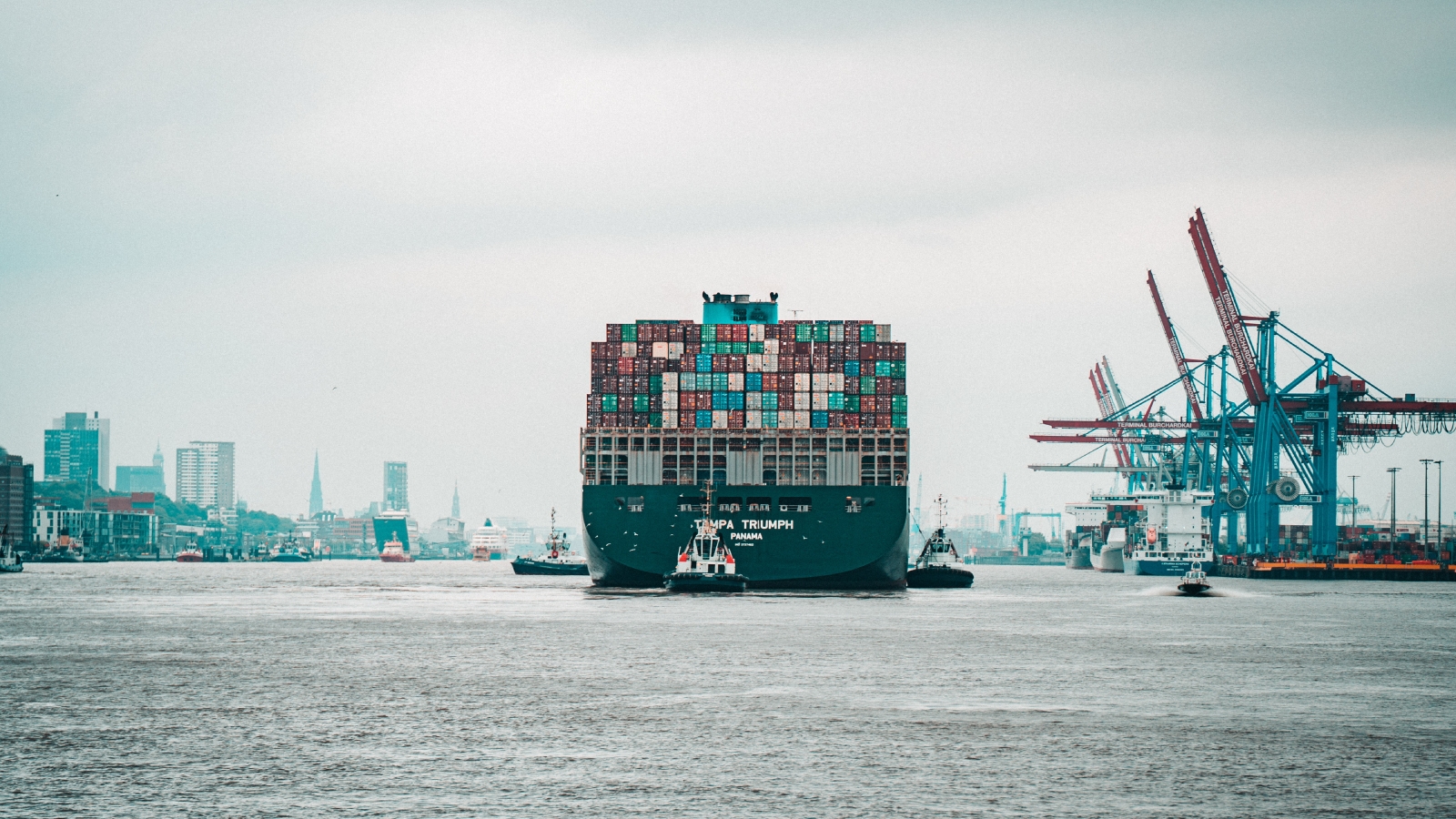
Using AI to manage shipping, Image Source
AI, as a tool for supply chain management, is enabling companies to pivot and navigate the escalating complexity of both global and local supply chains. In this blog post, we delve into the multifaceted ways in which AI can be harnessed, spotlight companies that are leading the charge in its effective utilization and explore five key strategies individuals and organizations are employing to leverage artificial intelligence for a more adept management of the supply chain.
How Can AI Be Used in the Supply Chain Process?
Using the massive amount of data generated by company operations, an organization is able to use AI-enabled solutions and teams of data scientists to transform supply chain operations including the implementation of factory automation, heightened quality control, more accurate demand forecasting, predictive maintenance, and a myriad of other innovations.
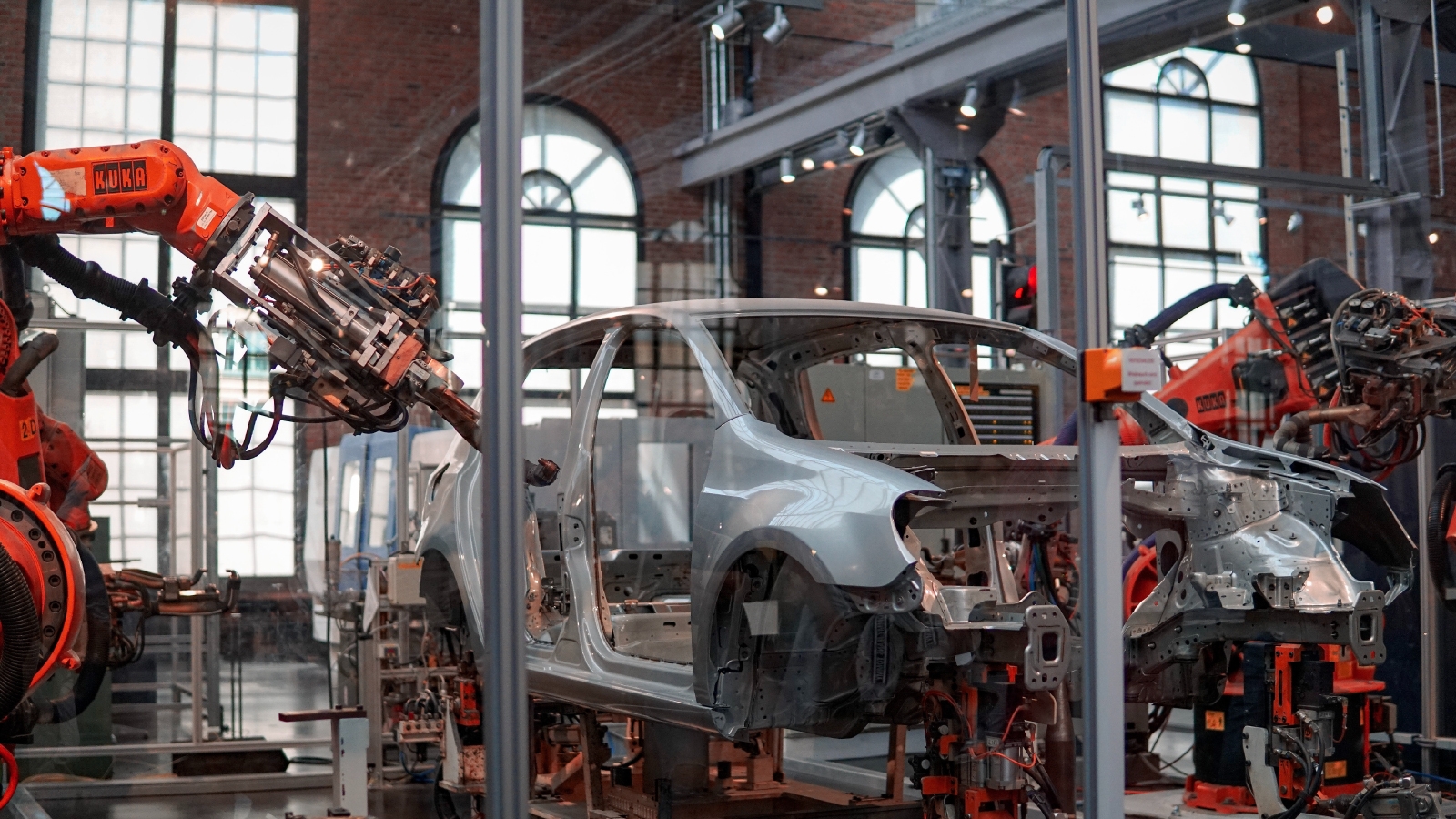
Automobile assembly line, Image Source
Supply chain departments are evolving into the central nervous systems of the operation. The role of supply chain management has become so central to organizations as they get bigger that they are now becoming a major independent industry of their own. The focus has shifted from just facilitating the movement of products to a more strategic emphasis in a high degree of optimization in supply versus demand.
AI-based solutions have become more accessible, offering businesses the tools to achieve unprecedented levels of supply chain management performance. Successful implementations of AI have resulted in a 15% reduction in logistics costs, a 35% decrease in inventory levels, and an impressive 65% improvement in service levels compared to non-adopters.
The integration of AI into the supply chain process is not just a technological advancement; it is a strategic imperative that empowers organizations to navigate the complexities of modern supply chains with precision, efficiency, and a competitive edge.
Interested in a workstation for artificial intelligence and data science research?
Learn more about Exxact AI workstations starting at $3,700
Which Companies Use AI In Supply Chain Management?
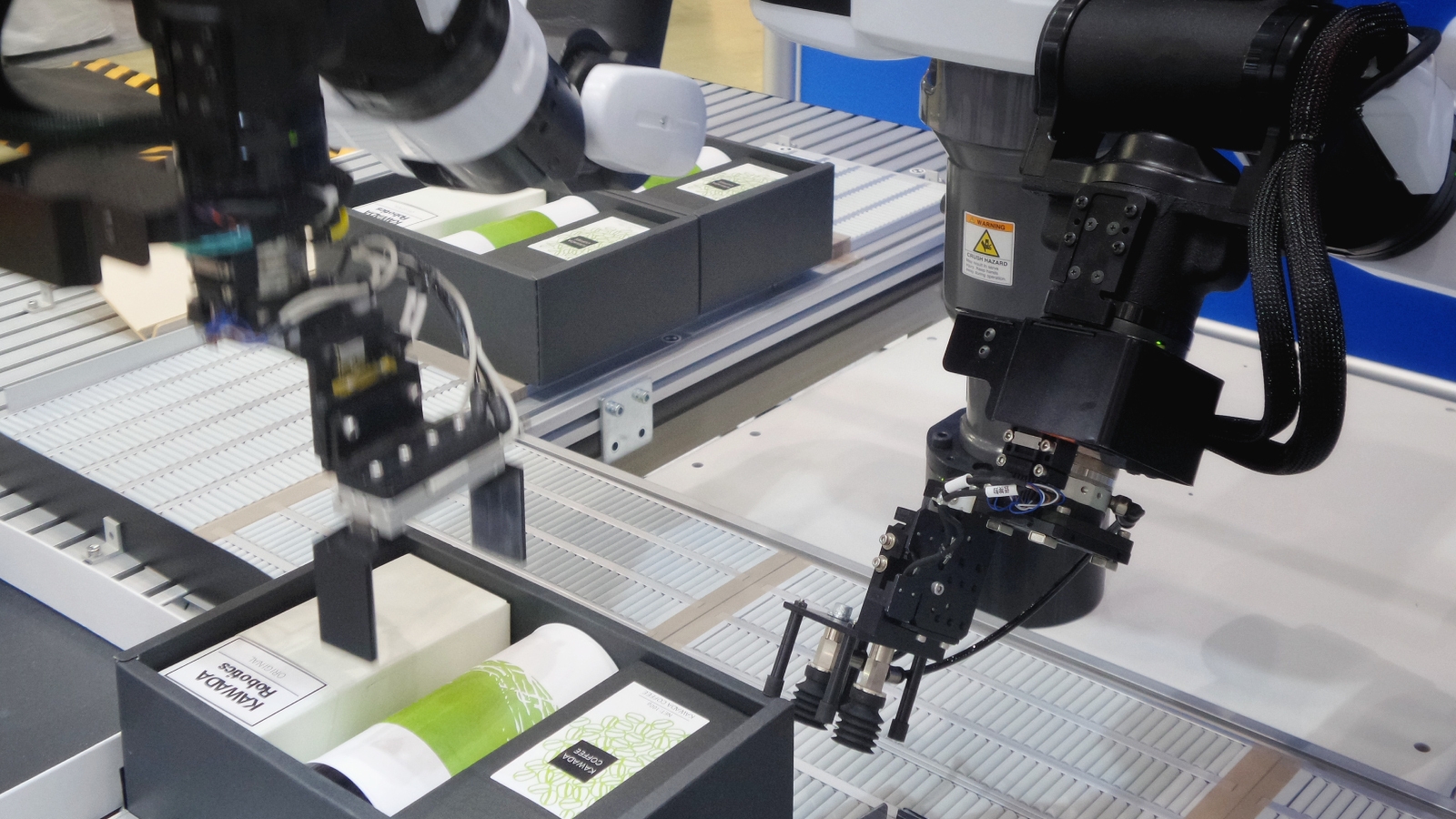
AI on the assembly line, Image Source
Major companies like IBM and Google are already taking full advantage of AI for supply chain management, but companies not typically known for using advanced artificial intelligence programs are starting to pay attention, too. Artificial intelligence is transforming the industry by more efficiently tracking operations, improving supply chain management and productivity, supplementing business plans, and even interacting with online customers.
Oracle, for example, is utilizing artificial intelligence to create databases that are self-updating and self-managing that their clients can use and take advantage of. Coupa is another company using AI for supply chain improvement and management. Coupa has created an entire business structure around helping businesses manage their own supply chains with the help of AI and other deep learning programs.
The logistics industry, from how truck drivers are organized to how products are ordered and scheduled, has almost completely adopted AI at various stages of their supply chain. With each new success, more businesses are jumping on board to optimize their business models with the adoption of AI in the supply chain process.
5 Ways Artificial Intelligence Is Used In Supply Chain Management

Using AI to organize truck deliveries, Image Source
According to several studies, artificial intelligence can provide supply chain and logistics operations unparalleled value, as has been mentioned above. Companies across the world are beginning to favor AI for supply chain improvement and management.
Whether they are looking at using AI to cut costs by eliminating operation redundancies and risk, mitigating unnecessary risk, improving supply chain forecasts, delivering products faster and more efficiently, or revitalizing their customer service strategies, AI is becoming critical to supply chain management.
Specifically, AI is making huge waves in being able to create demand forecasting models, increasing end-to-end transparency, integrating business plans, generating dynamic business optimization models, and, of course, vastly improving physical flow automation.
1. Demand Forecasting Models
In the intricate world of supply chain management, maintaining optimal stock levels is critical to prevent out-of-stock crises or surplus inventory. AI algorithms, leveraging historical data, market trends, and external factors, play a pivotal role in predicting future demand accurately. This proactive approach empowers companies to navigate inventory challenges swiftly, ensuring a responsive supply chain aligned with fluctuating consumer needs.
For instance, AI programs excel in anticipating product life cycles, flagging potential declines, and strategizing for end-of-life cycles on sales channels. By seamlessly transitioning to models for emerging products, companies can extend the lifecycle of their offerings, demonstrating the transformative impact of AI on demand forecasting.

Demand forecasting models, Image Source
2. End-to-End Transparency
The current forecast for supply chains globally is complicated, at best. It is more vital than ever for manufacturers to have total visibility of their entire supply chain. Manufacturers need to see at a glance how their products are coming together, how much is being produced, and how much is being shipped out.
AI-powered systems offer real-time insights into the entire supply chain, enhancing transparency and enabling quick responses to disruptions. This heightened visibility aids in the identification of bottlenecks and inefficiencies, fostering a more agile and responsive supply chain. Artificial intelligence for supply chain management can do all of this, not only by using historical data, but also by taking in and comprehending real-time data across multiple layers of the supply chain.

Data visualized on a map, Image Source
3. Integrated Business Planning
Supply chain managers struggle to fully optimize a supply chain because they are unable to see in real-time, detect variances in expanded product portfolios, comprehend shifts in consumer demand trends, or stay up to date on unexpected events like factory shutdowns and transportation issues.
For example, AI algorithms can optimize transportation routes, minimizing costs and reducing environmental impact. This not only improves the efficiency of delivery processes but also contributes to sustainable and eco-friendly supply chain practices.
4. Dynamic Planning Optimization
AI's prowess extends beyond integrating business plans across companies; it extends to generating cognitive predictions and recommendations for supply chain planning. This innovation saves companies valuable time by steering clear of convoluted manual business models and minimizing errors in the planning process. AI-integrated supply chain software magnifies crucial factors, optimizing processes and assisting manufacturers in evaluating scenarios in terms of time, cost, and revenue.

5. Physical Flow Automation
AI ensures the accurate structuring and filing of material bills and purchase order data. This not only facilitates real-time predictions but also empowers field operators with data-driven insights to maintain optimal inventory levels. Advanced AI programs, leveraging computer vision and physical sensors, monitor and modify supply chain processes, maintaining an accurate inventory spreadsheet in real-time.
Taking automation a step further, AI systems can recognize the need for replenishment by monitoring product availability on store shelves, cross-referencing inventory levels, and responding to high demand. This reduces the need for frequent manual inventory counts. For example, monitoring product on store shelves and cross referencing the remaining product inventory and current demand for the product, in order to actively reorder stock if demand is high and inventory is almost out.

Looking For More Information on AI or Supply Chain Management?
Using artificial intelligence to better manage our supply chain is already in practice in today's world and is rapidly becoming standard across every industry. AI's predictive prowess, fueled by advanced algorithms and real-time data analysis, empowers companies to not only meet but anticipate consumer demands, fostering a more agile and resilient supply chain. The enhanced visibility ensures that manufacturers can navigate the intricate web of global supply chains with precision.
In conclusion, the in intertwining of AI with the sensitive nature of supply chain management empowers organizations to not only adapt but thrive in the face of unprecedented challenges. AI mastery in supply chain dynamics is not merely an option but a strategic imperative for those seeking to chart the course toward a future of innovation, resilience, and sustained success.
We would love to hear your thoughts on using AI in supply chain management. Please feel free to comment below or contact us at any time with questions.
Exxact delivers performance driven services in procuring the right development platform for your artificial intelligence goals. Explore our various Deep Learning Server platforms, configure your ideal solution, or talk to our engineers to guide you along the way!

AI in Supply Chain Management
Optimizing Our Supply Chain Using Artificial Intelligence
In recent years, the management of supply chains has evolved into an intricate and challenging process. The interconnectivity of physical flows and the surge in market volatility have heightened the demand for agility and adaptability. This has only been exacerbated by the COVID-19 pandemic which has seen an increased global demand for resources while juggling a variety of changing pandemic precautions.
In response to these challenges, the integration of Artificial Intelligence (AI) into supply chain management has become more prevalent. Industries are increasingly recognizing the resilience and preparedness that early AI adopters exhibit, positioning them favorably for the inevitable integration of artificial intelligence into the future of supply chain management.
Supply chain management intertwines transportation, production, acquisition, marketing, sales, and various other facets. Companies leverage supply chain management to formulate integrated plans, effectively balancing trade-offs across diverse activities to optimize earnings. However, managing supply chains can swiftly become an overwhelming task without external assistance.

Using AI to manage shipping, Image Source
AI, as a tool for supply chain management, is enabling companies to pivot and navigate the escalating complexity of both global and local supply chains. In this blog post, we delve into the multifaceted ways in which AI can be harnessed, spotlight companies that are leading the charge in its effective utilization and explore five key strategies individuals and organizations are employing to leverage artificial intelligence for a more adept management of the supply chain.
How Can AI Be Used in the Supply Chain Process?
Using the massive amount of data generated by company operations, an organization is able to use AI-enabled solutions and teams of data scientists to transform supply chain operations including the implementation of factory automation, heightened quality control, more accurate demand forecasting, predictive maintenance, and a myriad of other innovations.

Automobile assembly line, Image Source
Supply chain departments are evolving into the central nervous systems of the operation. The role of supply chain management has become so central to organizations as they get bigger that they are now becoming a major independent industry of their own. The focus has shifted from just facilitating the movement of products to a more strategic emphasis in a high degree of optimization in supply versus demand.
AI-based solutions have become more accessible, offering businesses the tools to achieve unprecedented levels of supply chain management performance. Successful implementations of AI have resulted in a 15% reduction in logistics costs, a 35% decrease in inventory levels, and an impressive 65% improvement in service levels compared to non-adopters.
The integration of AI into the supply chain process is not just a technological advancement; it is a strategic imperative that empowers organizations to navigate the complexities of modern supply chains with precision, efficiency, and a competitive edge.
Interested in a workstation for artificial intelligence and data science research?
Learn more about Exxact AI workstations starting at $3,700
Which Companies Use AI In Supply Chain Management?

AI on the assembly line, Image Source
Major companies like IBM and Google are already taking full advantage of AI for supply chain management, but companies not typically known for using advanced artificial intelligence programs are starting to pay attention, too. Artificial intelligence is transforming the industry by more efficiently tracking operations, improving supply chain management and productivity, supplementing business plans, and even interacting with online customers.
Oracle, for example, is utilizing artificial intelligence to create databases that are self-updating and self-managing that their clients can use and take advantage of. Coupa is another company using AI for supply chain improvement and management. Coupa has created an entire business structure around helping businesses manage their own supply chains with the help of AI and other deep learning programs.
The logistics industry, from how truck drivers are organized to how products are ordered and scheduled, has almost completely adopted AI at various stages of their supply chain. With each new success, more businesses are jumping on board to optimize their business models with the adoption of AI in the supply chain process.
5 Ways Artificial Intelligence Is Used In Supply Chain Management

Using AI to organize truck deliveries, Image Source
According to several studies, artificial intelligence can provide supply chain and logistics operations unparalleled value, as has been mentioned above. Companies across the world are beginning to favor AI for supply chain improvement and management.
Whether they are looking at using AI to cut costs by eliminating operation redundancies and risk, mitigating unnecessary risk, improving supply chain forecasts, delivering products faster and more efficiently, or revitalizing their customer service strategies, AI is becoming critical to supply chain management.
Specifically, AI is making huge waves in being able to create demand forecasting models, increasing end-to-end transparency, integrating business plans, generating dynamic business optimization models, and, of course, vastly improving physical flow automation.
1. Demand Forecasting Models
In the intricate world of supply chain management, maintaining optimal stock levels is critical to prevent out-of-stock crises or surplus inventory. AI algorithms, leveraging historical data, market trends, and external factors, play a pivotal role in predicting future demand accurately. This proactive approach empowers companies to navigate inventory challenges swiftly, ensuring a responsive supply chain aligned with fluctuating consumer needs.
For instance, AI programs excel in anticipating product life cycles, flagging potential declines, and strategizing for end-of-life cycles on sales channels. By seamlessly transitioning to models for emerging products, companies can extend the lifecycle of their offerings, demonstrating the transformative impact of AI on demand forecasting.

Demand forecasting models, Image Source
2. End-to-End Transparency
The current forecast for supply chains globally is complicated, at best. It is more vital than ever for manufacturers to have total visibility of their entire supply chain. Manufacturers need to see at a glance how their products are coming together, how much is being produced, and how much is being shipped out.
AI-powered systems offer real-time insights into the entire supply chain, enhancing transparency and enabling quick responses to disruptions. This heightened visibility aids in the identification of bottlenecks and inefficiencies, fostering a more agile and responsive supply chain. Artificial intelligence for supply chain management can do all of this, not only by using historical data, but also by taking in and comprehending real-time data across multiple layers of the supply chain.

Data visualized on a map, Image Source
3. Integrated Business Planning
Supply chain managers struggle to fully optimize a supply chain because they are unable to see in real-time, detect variances in expanded product portfolios, comprehend shifts in consumer demand trends, or stay up to date on unexpected events like factory shutdowns and transportation issues.
For example, AI algorithms can optimize transportation routes, minimizing costs and reducing environmental impact. This not only improves the efficiency of delivery processes but also contributes to sustainable and eco-friendly supply chain practices.
4. Dynamic Planning Optimization
AI's prowess extends beyond integrating business plans across companies; it extends to generating cognitive predictions and recommendations for supply chain planning. This innovation saves companies valuable time by steering clear of convoluted manual business models and minimizing errors in the planning process. AI-integrated supply chain software magnifies crucial factors, optimizing processes and assisting manufacturers in evaluating scenarios in terms of time, cost, and revenue.

5. Physical Flow Automation
AI ensures the accurate structuring and filing of material bills and purchase order data. This not only facilitates real-time predictions but also empowers field operators with data-driven insights to maintain optimal inventory levels. Advanced AI programs, leveraging computer vision and physical sensors, monitor and modify supply chain processes, maintaining an accurate inventory spreadsheet in real-time.
Taking automation a step further, AI systems can recognize the need for replenishment by monitoring product availability on store shelves, cross-referencing inventory levels, and responding to high demand. This reduces the need for frequent manual inventory counts. For example, monitoring product on store shelves and cross referencing the remaining product inventory and current demand for the product, in order to actively reorder stock if demand is high and inventory is almost out.

Looking For More Information on AI or Supply Chain Management?
Using artificial intelligence to better manage our supply chain is already in practice in today's world and is rapidly becoming standard across every industry. AI's predictive prowess, fueled by advanced algorithms and real-time data analysis, empowers companies to not only meet but anticipate consumer demands, fostering a more agile and resilient supply chain. The enhanced visibility ensures that manufacturers can navigate the intricate web of global supply chains with precision.
In conclusion, the in intertwining of AI with the sensitive nature of supply chain management empowers organizations to not only adapt but thrive in the face of unprecedented challenges. AI mastery in supply chain dynamics is not merely an option but a strategic imperative for those seeking to chart the course toward a future of innovation, resilience, and sustained success.
We would love to hear your thoughts on using AI in supply chain management. Please feel free to comment below or contact us at any time with questions.
Exxact delivers performance driven services in procuring the right development platform for your artificial intelligence goals. Explore our various Deep Learning Server platforms, configure your ideal solution, or talk to our engineers to guide you along the way!

